
Surviving on Mars
Is Mars capable of sustaining human life? As soon as a crew lands on the surface of Mars, its resistance will be tested under the harsh conditions of the red planet. Talk with researchers Isabel Abreu and Pedro Machado about surviving on Mars.
Read more

Going to Mars
Leaving the Earth and travelling to the red planet involves several technological and physiological challenges. What do we need to go, live and be able to return? Talk with researchers Rui Agostinho and Pedro Fevereiro about travels to Mars.
Read more

Life on Mars
After Earth, the red planet is the Solar System body where life is most likely to have existed. Talk with researchers Adriano Henriques and Zita Martins about the search for life on Mars.
Read more
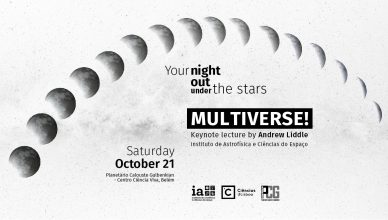
Multiverse
Modern theories of cosmology appear to predict that our region of space is a minuscule fragment of a huge ‘multiverse’, where over vast distances physical properties, and perhaps the nature of physical laws themselves, can change.
Read more
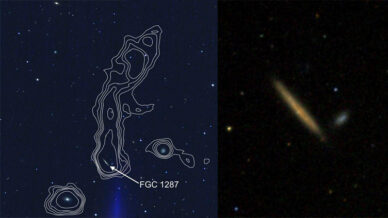
In a very distant galaxy: FGC 1287
What mechanism is stripping off gas away from the galaxy FGC 1287 and producing a long tail of neutral hydrogen?
Read more
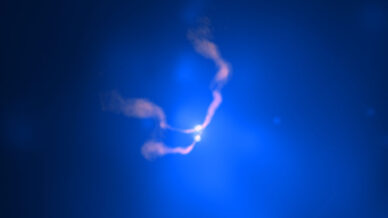
In a very distant galaxy: 3C 75
Two black holes orbit each other in the centre of collision of two galaxies, in the Abell 400 galaxy cluster.
Read more
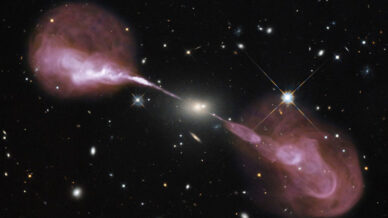
In a very distant galaxy: Hercules A
Hercules A is much bigger than what we see in the visible light. Observed in the radio band, it reveals the activity of a central black hole with the mass of 4 billion suns.
Read more
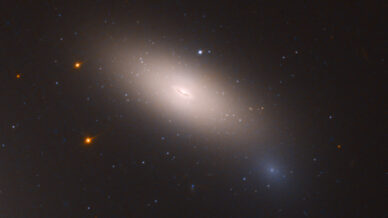
In a very distant galaxy: NGC 1277
It is challenging to find pristine galaxies like NGC 1277, which allows us to see what otherwise would be too far and faint.
Read more

